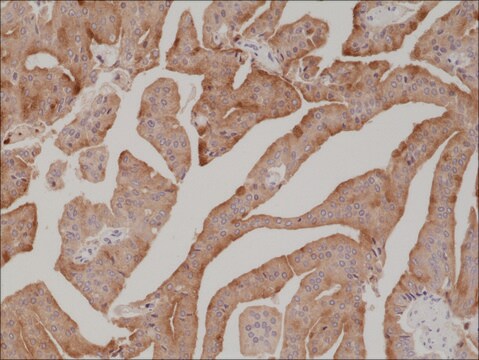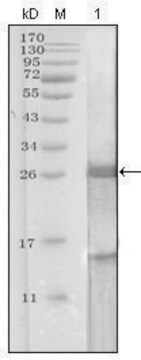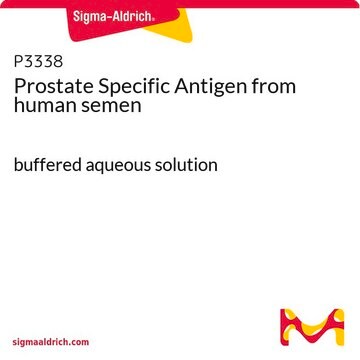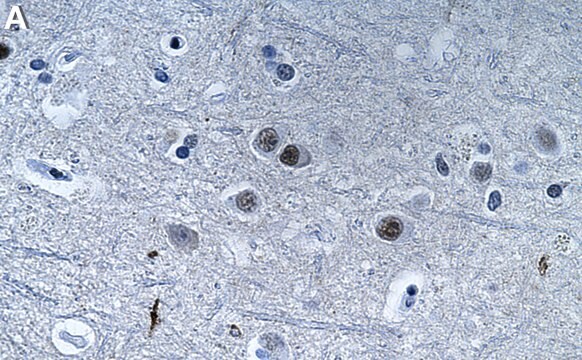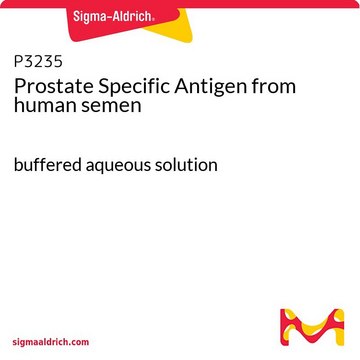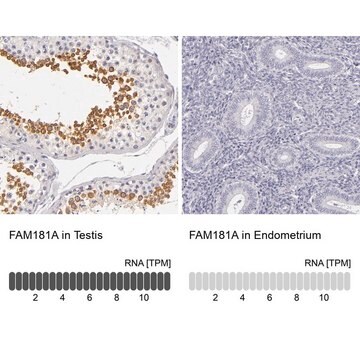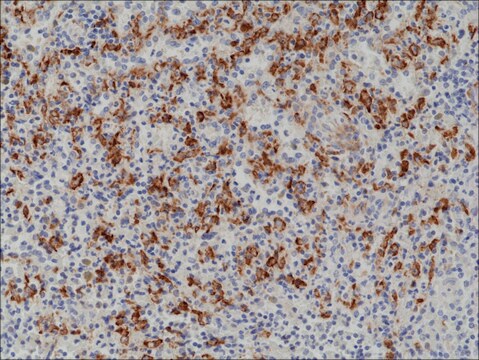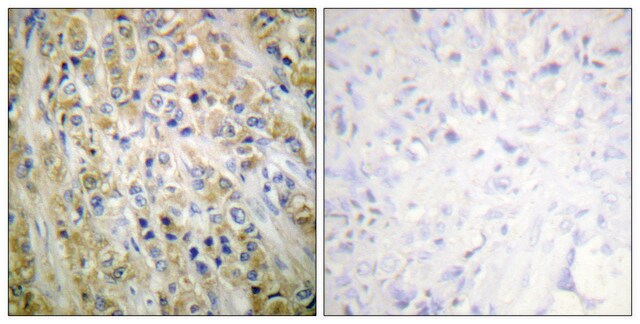ZRB1972
Anti-PSA Antibody, clone 1E10 ZooMAb® Rabbit Monoclonal

recombinant, expressed in HEK 293 cells
Synonym(s):
Prostate-specific antigen;EC:3.4.21.77;PSA;Gamma-seminoprotein; Seminin;Kallikrein-3;P-30 antigen;Semenogelase
About This Item
Recommended Products
biological source
rabbit
Quality Level
recombinant
expressed in HEK 293 cells
conjugate
unconjugated
antibody form
purified antibody
antibody product type
primary antibodies
clone
1E10, recombinant monoclonal
description
1E10 Clone
product line
ZooMAb® learn more
form
lyophilized
mol wt
calculated mol wt 28.74 kDa
observed mol wt ~32 kDa
purified by
using Protein A
species reactivity
human
packaging
antibody small pack of 25 μL
greener alternative product characteristics
Waste Prevention
Designing Safer Chemicals
Design for Energy Efficiency
Learn more about the Principles of Green Chemistry.
enhanced validation
recombinant expression
Learn more about Antibody Enhanced Validation
sustainability
Greener Alternative Product
technique(s)
affinity binding assay: suitable
flow cytometry: suitable
immunocytochemistry: suitable
immunohistochemistry: suitable
western blot: suitable
isotype
IgG
epitope sequence
Internal
Protein ID accession no.
UniProt accession no.
greener alternative category
, Aligned
shipped in
ambient
storage temp.
2-8°C
target post-translational modification
unmodified
Gene Information
human ... KLK3(354)
General description
Specificity
Immunogen
Application
Evaluated by Western Blotting in Human Prostate tissue lysate.
Western Blotting Analysis: A 1:10,000 dilution of this antibody detected prostate specific antigen (PSA) in Human Prostate tissue lysate.
Tested applications
Affinity Binding Assay: A representative lot of this antibody bound prostate specific antigen (PSA) peptide with a KD of 3.0 x 10-7 in an affinity binding assay.
Immunohistochemistry (Paraffin) Analysis: A 1:1,000 dilution from a representative lot detected prostate specific antigen (PSA) in human prostate tissue sections.
Immunocytochemistry Analysis: A 1:100 dilution from a representative lot detected prostate specific antigen (PSA) in LNCaP cells.
Flow Cytometry Analysis: 0.1 μg from a representative lot detected prostate specific antigen (PSA) in one million LNCap cells.
Note: Actual optimal working dilutions must be determined by end user as specimens, and experimental conditions may vary with the end user
Evaluated by Western Blotting in Human Prostate tissue lysate.
Western Blotting Analysis: A 1:10,000 dilution of this antibody detected PSA in Human Prostate tissue lysate.
Target description
Physical form
Storage and Stability
Legal Information
Disclaimer
Not finding the right product?
Try our Product Selector Tool.
Storage Class
11 - Combustible Solids
wgk_germany
WGK 1
flash_point_f
Not applicable
flash_point_c
Not applicable
Choose from one of the most recent versions:
Certificates of Analysis (COA)
Don't see the Right Version?
If you require a particular version, you can look up a specific certificate by the Lot or Batch number.
Already Own This Product?
Find documentation for the products that you have recently purchased in the Document Library.
Our team of scientists has experience in all areas of research including Life Science, Material Science, Chemical Synthesis, Chromatography, Analytical and many others.
Contact Technical Service